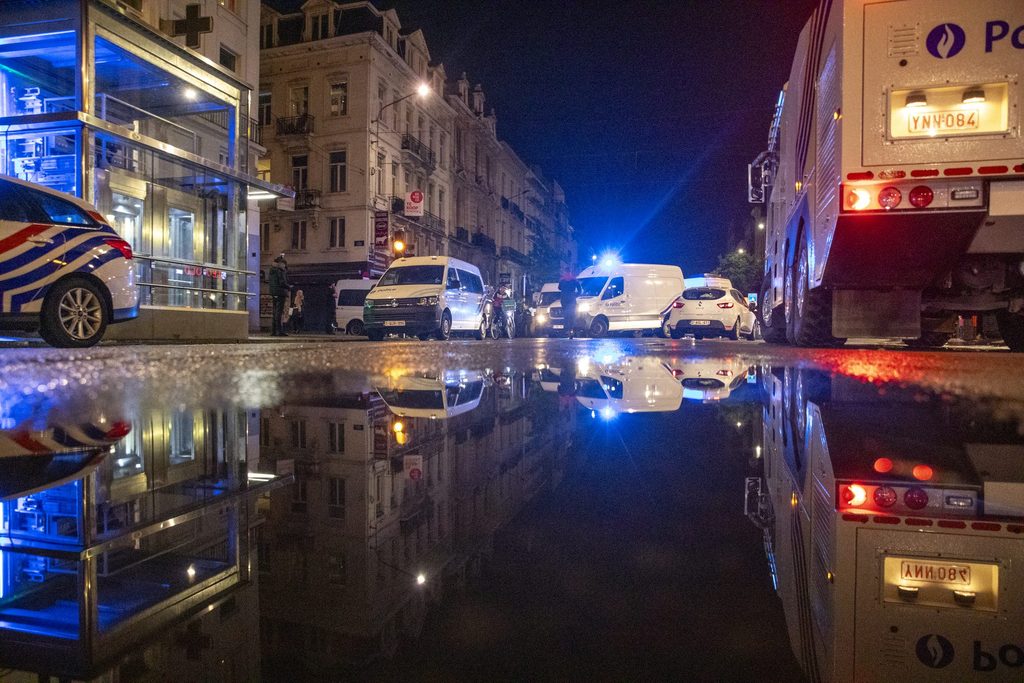In an effort to prevent more riots in response to the police killing of 17-year-old Nahel in France, Brussels is taking measures that include working with youth and neighbourhood associations.
Brussels mayor Philippe Close (PS) met with several Brussels youth and neighbourhood associations on Monday morning with the aim of avoiding riots such as that seen last Thursday, which mimicked protests in several French cities triggered by the fatal shooting of Nahel by a police officer in the French city of Nanterre during a traffic stop last Tuesday.
In the Belgian capital, riots broke out in and around the Anneessens neighbourhood and at the nearby Midi (South) Station last Thursday, which were said to be instigated by "almost exclusively minors." A massive police presence was seen at both locations, resulting in almost 100 arrests in total.
Later in the week, law enforcers in Brussels made "preventive" administrative arrests to avoid rioting following calls to once again gather in the city centre. Since Thursday, 200 Brussels youths have already been preventively detained. Critics have argued many of these arrests involved racial profiling.
Other preventive measures
Close said in an interview with RTL that he wants to complement these policing measures with preventive youth work, because "sometimes these incidents involve very young offenders."
To this end, the mayor met with several youth and community work associations to discuss why young people are led to copycat the riots in France. He will discuss other measures that can be taken to avoid further acts of public disorder.
While the specifics of the measures have not yet been affirmed, "the intention is not only to tackle unrest with repressive measures but also to discourage it in other ways." Close added that these neighbourhood and residents’ committees played a major role in preventing further unrest over the weekend.
The arrested youngsters are also only released if their parents come to collect them from the police station so a conversation can take place about what happened.
Apple store gets ready for the night in Bruxelles #JusticePourNael #Lyon #Emeutes #etatdurgence #Nahel #Nanterre #Marseille #émeutes #Nahel #Marsilya Fransa #France #Frankreich #EidAlAdha #Paris Macron #FranceProtests #Emeute #FransaYanıyor
pic.twitter.com/AZaywliuBd — Musa Kayrak (@musakayrak) July 2, 2023
In France, a heavy police presence is keeping a tight hold on the tense situation, though unrest has subsided slightly. On Sunday, 45,000 police officers and gendarmes were deployed across the country, but no major incidents were reported.
Home Affairs Minister Gérald Darmanin said order was "being restored... thanks to the firmness that has been shown." He has been asked by Macron to maintain a "massive police presence" on the ground in order to guarantee a "full return to calm."
Some 3,200 people were arrested by the police and gendarmerie between Tuesday and Sunday during the five nights of rioting. Here, too, the majority were minors, with some as young as 12 years old. About 60% had no criminal record, were not known to the police and "have never been subject to a police check."

